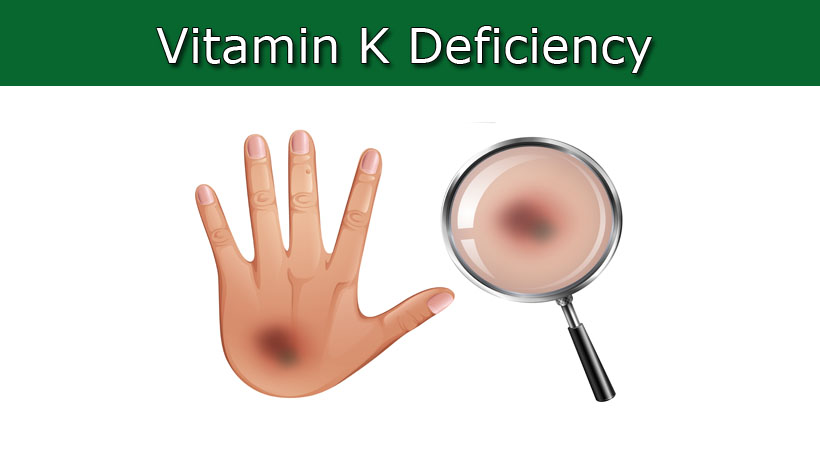Vitamin K is beneficial when it comes to bone health, cognitive health, and heart health. The body needs vitamin K to produce prothrombin, a protein and clotting factor that is important in blood clotting and bone metabolism, according to the website Medical News Today. Deficiency is rare, but, in severe cases, it can increase clotting time, leading to hemorrhage and excessive bleeding.
Phylloquinone, also known as vitamin K1, is found in plants. When people eat it, bacteria in the large intestine convert it to its storage form, vitamin K2. It is absorbed in the small intestine and stored in fatty tissue and the liver. What are the warning signs for Vitamin K deficiency?
According to the health information brand Dr. Axe, vitamin K deficiency occurs when you either consume less vitamin K than you need or you can’t absorb enough from your diet. The amount of vitamin K that you are able to absorb from your diet is related to the intestinal bacteria that you have, so your level of vitamin K can drop greatly depending on your overall health, especially your gut/digestive health.
Signs and symptoms
Excessive bleeding and bruising: Without vitamin K, the body can’t clot blood properly. Bleeding can sometimes begin as oozing from the gums or nose. Heavy bleeding can also occur from wounds, punctures, and injections or surgical sites.
Heavy and painful menstrual periods: According to the U.S. National Library of Medicine, heavy periods, or menorrhagia can affect up to 10-20 percent of reproductive-age women.
Bleeding and hemorrhaging within the gastrointestinal (GI) tract: According to Dr. Axe, this can cause blood in the urine and/or stool.
Causes of deficiency
Although vitamin K deficiency is uncommon in adults, certain people are at increased risk. The medical information website Healthline says there is an increased risk if you:
- Take coumarin anticoagulants such as warfarin, which thins the blood
- Are taking antibiotics
- Have a condition that causes the body to not absorb fat properly (fat malabsorption)
- Have a diet that is extremely lacking in vitamin K
Preventative measures
There is no set amount of vitamin K that you should consume each day, states Health Line. But on an average day, nutritionists consider 120 mg adequate for men and 90 mg adequate for women. Some foods, including leafy green vegetables, are extremely high in vitamin K and will give you all you need in one serving.
Sources:
https://www.medicalnewstoday.com/articles/219867.php
https://draxe.com/vitamin-k-deficiency/
https://www.healthline.com/health/vitamin-k-deficiency#prevention
https://www.ncbi.nlm.nih.gov/pmc/articles/PMC5592002/



